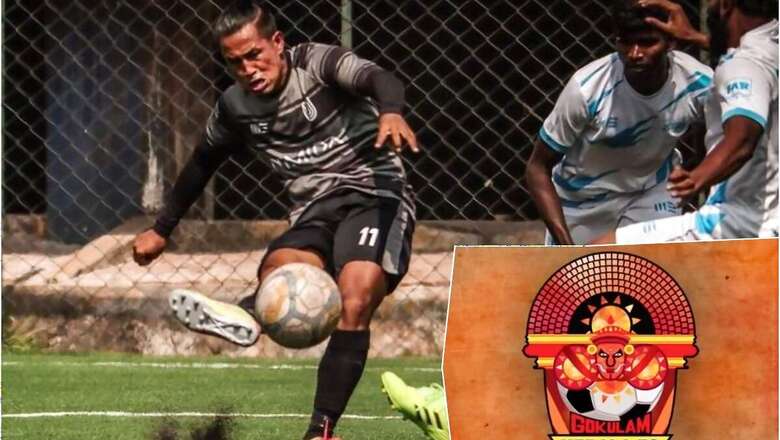
views
In the past eight to 10 months, there has been a rise in the number of cases of non-payment of salaries and wrongful termination in Indian football. According to industry insiders, the clubs are using Covid-19 pandemic as an excuse to make budget cuts and get out of the contracts they don’t want to be involved with.
Be it Malemnganba Meetei vs Gokulam Kerala, Pintu Mahata vs East Bengal or Gagandeep Singh vs Ozone FC, the clubs failed to honour the contracts and the All India Football Federation (AIFF) stepped up to make sure that the players were treated in a just manner.
AIFF general secretary Kushal Das told News18.com in an exclusive interaction that they are trying to create a level-playing field for the players so that the clubs cannot skew the system in their favour, which has been the case for a long time.
“All the FIFA and AIFF rules are essentially skewed towards the players to protect the players because the player is the most important component of the whole football ecosystem – if there are no players, there is no sport. Earlier, the contracts were shady and were signed on blank papers but now the situation has improved,” Das said.
Das said that the AIFF implemented standardised player contracts in the Indian Super League (ISL) last year and the I-League clubs will pick it up in the upcoming season. “There were so many clauses which were ambiguous and which were actually skewed towards the club, never to the players”, which is why AIFF is looking to have a basic contract outline for the Indian football ecosystem.
While AIFF’s efforts continue on the ground, the Player Status Committee (PSC) has done a few rulings in favour of the players to lay down the rules firmly.
Pintu Mahata’s contract was terminated unilaterally by East Bengal and the club has been asked to pay Rs 11 lakhs plus an interest of five percent to the player. The decision was passed on February 19, 2021 and East Bengal were given 45 days to make the payment. It’s been over four months and they are yet to do it. The Football Players Association of India (FPAI), who fought the case for Mahata, are looking to take the matter to AIFF again, asking for sanctions against the club.
Another case that deserves mention is of Gagandeep Singh against Ozone FC and the amount has not been paid by the club despite the verdict coming in favour of the player. However, Ozone FC has shut down and now FPAI have a process to follow before they can get money for the player from FIFPro.
The case of Malem vs Gokulam Kerala is one that set the precedent as the PSC verdict was given on January 22, 2021. Gokulam were asked to pay Rs 18 lakhs to Malem but the club is yet to pay the player.
CASE IN STUDY – Malem vs Gokulam Kerala FC
Malem entered into a three-year contract with Gokulam Kerala FC on June 20, 2019, which ran till May 15, 2022. After making 10 appearances for the club in the Durand Cup and the I-League (which ended abruptly due to Covid-19), the club unilaterally terminated his contract by sending him an email on June 19, 2020.
In the aforementioned email, the club said it was terminating Malem’s contract by invoking the Force Majeure clause and that the termination was effective from May 31, 2020.
Malem, having travelled from Kerala to Imphal, was in community quarantine at that time and he checked his mail a couple of days later to find out to his utter surprise that his contract had been unilaterally terminated. He wrote back to the club expressing his surprise over the development and said he wanted to continue playing for the club. Upon receiving no response, he wrote back saying that if the club wished to terminate his contract, they would be required to pay him his remaining contract amount.
Gokulam Kerala did not respond to either Malem or his lawyers Dhruv Sood and Lzafeer Ahmad even after they sent a legal notice. News18.com reached out to both Sood and Ahmad but they declined to comment on the proceedings but hailed it as “an important step for the protection of player rights in this country”.
A source close to the proceedings stated that Gokulam’s first response came after a wrongful termination case was lodged by Malem with the PSC. In the case that was filed by Malem’s lawyers, it was mentioned that it was against AIFF and FIFA rules to terminate a contract unilaterally during the pandemic or otherwise. The club stood in contradiction of its own argument, invoking the Force Majeure clause showing financial trouble while still signing new players at the same time.
In their reply to the PSC notice, Gokulam said that they had decided to withdraw the termination even though they had not intimated the same to the player or his lawyers before the above-mentioned response. However, the club asked Malem to return to training but the player did not join and asked for a fresh contract to be put forth.
In the first PSC hearing, Malem said he was willing to play for Gokulam if they offered a fresh contract on absolutely the same terms. Gokulam also said they were willing to do that to end the dispute.
While the original contract payment was effective from July 15, the fresh contract that Gokulam offered was from October. Apart from that change, Gokulam made changes to a couple of clauses. They added a Body Mass Index (BMI) clause, requiring Malem to have his BMI under 25 upon arrival, and removed the injury clause, where he was to be paid by the club even when he was on the sidelines recuperating.
After multiple rounds of negotiations, neither party could arrive at an amicable solution. Thereafter, the PSC passed an interim order asking Gokulam to issue a No-objection Certificate (NOC) for Malem so that he could find another club for himself. Upon receiving the same, Malem signed a contract with second division club FC Bengaluru United and the AIFF PSC was informed of the terms.
On January 21, the AIFF PSC ruled in favour of Malem that Gokulam had indeed terminated the contract wrongfully. However, according to the verdict the club was not obligated to pay dues till May of each year but till the month of March, when the 2019-20 season ended.
Applying mitigation (according to the salary Malem would be receiving from Bengaluru United), the PSC ruled that Gokulam are to pay Rs 18 lakhs – six lakhs for the 2020-21 season and 12 lakhs for the 2021-22 season.
Further, the club also received a transfer ban for two consecutive registration periods.
Gokulam was required to pay Malem the amount in 30 days from the verdict date but the club filed an appeal against the verdict with the AIFF Appeals Committee. The club contested the transfer ban and stated that the mitigation should also be applied for the 2021-22 season.
The Appeals Committee gave its verdict on May 18, 2021 upholding the entire AIFF PSC order but removing the transfer ban.
WHAT GOKULAM SAID
Gokulam Kerala FC CEO Ashok Kumar made it clear in a conversation with News18.com that he and the club were not in agreement with the PSC verdict and that the committee did not sympathise with the club at all in times of the Covid-19 pandemic.
Ashok said that the club terminated Malem’s contract after a performance review where they felt he was not putting his best foot forward for the club and that he had behavioural issues. However, these instances were not mentioned in his termination mail.
He further added that Malem could have accepted the fresh contract they offered him but it was his choice to not take it. “We thought it was our duty to revoke the termination and give him a new contract. But if Malem is not interested and is not planning to come back, we can’t do anything,” he said.
He further accused Malem of “having mala fide intentions” and that “he wanted to make money from both ends”.
Ashok had even written to the AIFF expressing his unhappiness with the verdict and the process but the federation responded saying they could not override the decision of an “independent judicial body”.
“The order that has been given on the club for no fault of the club, is it justified or not? Laws are laws but it should for a just cause. The process should have been more understanding towards the club. It is going to be a precedent for many to make mistakes,” Ashok expressed.
RESPONSES FROM AIFF, MALEM
AIFF general secretary Kushal Das was of the opinion that the pandemic did not have a massive impact on Indian clubs and that the clubs should have handled the situation in a better manner. He felt that had the clubs spoken to the players and reached a settlement, it would have been beneficial for both parties. “A lot of unlawful termination or non-payment happens when the club realises their budgets have gone haywire or whatever,” he said.
He stated that the law is very clear – unilateral termination of a contract is not valid in any circumstance.
“In many cases yes, there are clubs who tried to take advantage of the Covid situation and terminate contracts. But they should have known that the law of the land will always prevail. You cannot unilaterally terminate a contract and that is what happened in the Gokulam Kerala case. They had a contract and they had agreed on something, there was no other option for the judicial body but to give the verdict in favour of the player,” Das added.
Siddharth Bhattacharya, FPAI manager, also told News18.com that Covid has not impacted the Indian clubs much because the structure is such that they don’t depend on gate revenues. He added that in cases of non-payment and unilateral termination, the “pandemic has been more of an excuse from the club’s side.”
He said that clubs add performance clauses in contracts according to which a contract can be terminated if the club is unsatisfied with the player’s performance, which he feels is not valid.
It is worth noting that players get into contracts without being completely aware of the validity of it. Often clubs add clauses to the contracts that do not comply with the regulations. News18.com has learnt that other Gokulam player contracts have unilateral clauses, which would make them invalid in the eyes of the law.
Another source close to the proceedings revealed to News18.com that Gokulam Kerala FC did not envisage that Malem would take the legal route and thought the matter would fizzle out like most times. The source also added the clubs use various methods to push a player out like delaying salaries and stopping the player from training – again unlawful by provisions set out by FIFA and AIFF.
The source also added that there was another case of unlawful termination from Gokulam that had not gone to the PSC. News18.com understands that there have been several cases over the years that have gone unresolved due to the players being unaware of their contractual rights.
Malem told News18.com that first and foremost he was very relieved with the verdict and wanted to thank his lawyers for taking up his case on a pro bono basis.
He said that he was initially shocked when he received his termination mail and that being a part of such a dispute was “distressing”. He added that initially he was not even aware of the existence of the PSC but after having gone through the experience, he wants to make the players’ aware that AIFF has a place for them to fight for their rights.
“The AIFF and PSC have been very helpful. At first I thought about what the decision was going to be, whether it would be against me or in my favour. The PSC and AIFF have done a good job, it is black and white now. I signed a contract and according to that, the PSC listened to my appeal. This process is very helpful.
“During the process, I got to know that there are principle that govern player – club contracts and that clubs cannot have terms that are damaging to player rights.”
He said during the whole ordeal what stayed with him was that “I was fighting for my rights.”
Malem hoped that his case would help other players in future. “The players, whether their contract is not being respected or not being taken care of, know that there is a solution. I am happy AIFF is standardising contracts. It’ll help players.”
Currently, AIFF does not publish their verdicts publicly but Das said it was a matter that has been in discussion and will be placed to the executive committee. “I think good governance and transparency dictates that these verdicts be published. How much of a verdict should be published – only the operating sector or just the verdict itself is something which we need to kind of examine and decide upon.”
One outcome that has emerged is clear – Malem’s case has ensured that players will have a chance of getting their disputes resolved by the AIFF’s internal committees and that the clubs cannot act unilaterally anymore.
Read all the Latest News, Breaking News and Coronavirus News here.












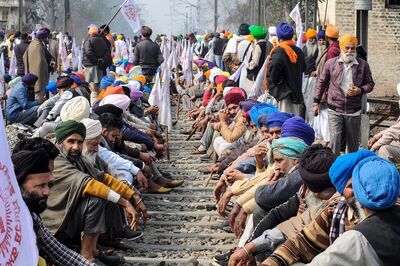
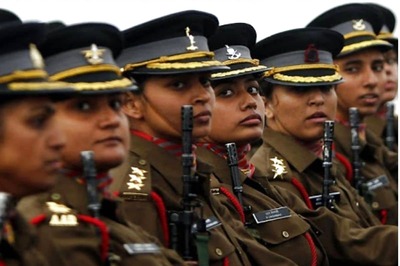
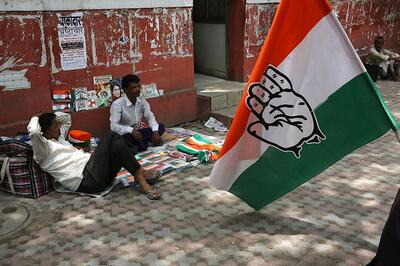

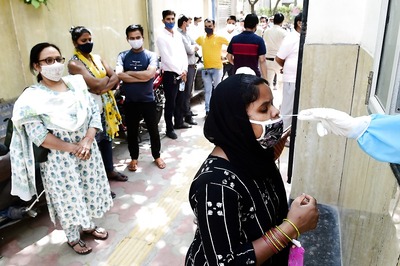


Comments
0 comment